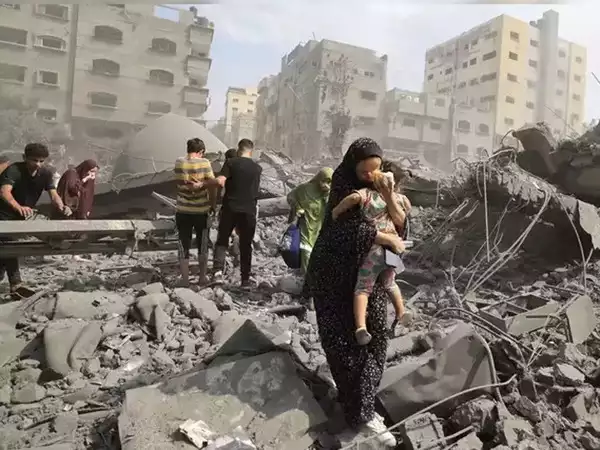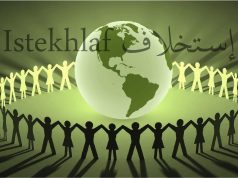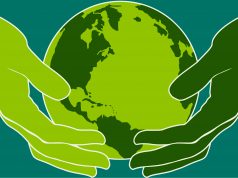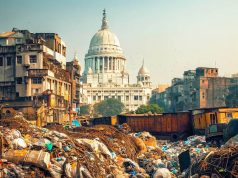In recent days, the unfolding tragedy in Palestine has served as an alarming wake-up call to the world, forcing us to confront the harsh reality that, as humans, many are not just struggling to survive, but are literally on the brink of perishing. Basic necessities like oxygen, water, food, and secure shelter are being cruelly denied amid a conflict that challenges our shared humanity. It is a stark paradox that in an era of scientific progress and modernity, we find ourselves in the midst of a seismic incident where fundamental needs are being callously throttled.
The use of phosphorus gas on a living civilization, a civilization that mandates pollution certificates for vehicles, exposes a grotesque incongruity in our existence. Bombs, tankers, and missiles, showcased as collateral damage in live streams, vividly depict a scene of barbarity and primal violence, a harsh departure from the civilized world we claim to inhabit.
Standing on the platform of Parisar Samvad, committed to fostering a holistic conversation around the environment, it becomes imperative for us to raise our voices against this injustice. Our environmental paradigm places human beings at its core, considering this world as a crucible testing our character and resolve. When life is uprooted, our environmental ethos is marauded to its very core. Our environmental stance not only compels but demands that we condemn this atrocity and call for global solidarity against those who, as settler fascists, are uprooting Earth’s inhabitants and plundering humankind.
It feels hypocritical and intellectually shallow if the global environmental discourse fails to recognize this as a pressing crisis for all of humanity. Embracing the concept of intersectionality provides a window for a broader perspective, urging us to understand and unsettle ourselves, and compelling us to raise our voices against this travesty. This call goes beyond the boundaries of ethnicity or race; our environmental lens should empower discourse to illuminate us as standard bearers, rousing the world from the slumber of docility and haze. We urgently need a vocabulary of understanding, resistance, and empathy.
Our call to action resonates with environmentalists, human rights activists, academicians, philosophers, and all those with even a modicum of humanity and empathy. Parisar Samvad implores each of them to raise their voices, viewing this crisis through an environmental lens as not just an assault on a region but as the decapitation of civilization and the onset of Anthropocene actions. It is a fervent plea for global solidarity in the face of a humanitarian crisis, demanding collective action and a united stance against the forces that threaten the very fabric of our shared humanity.






